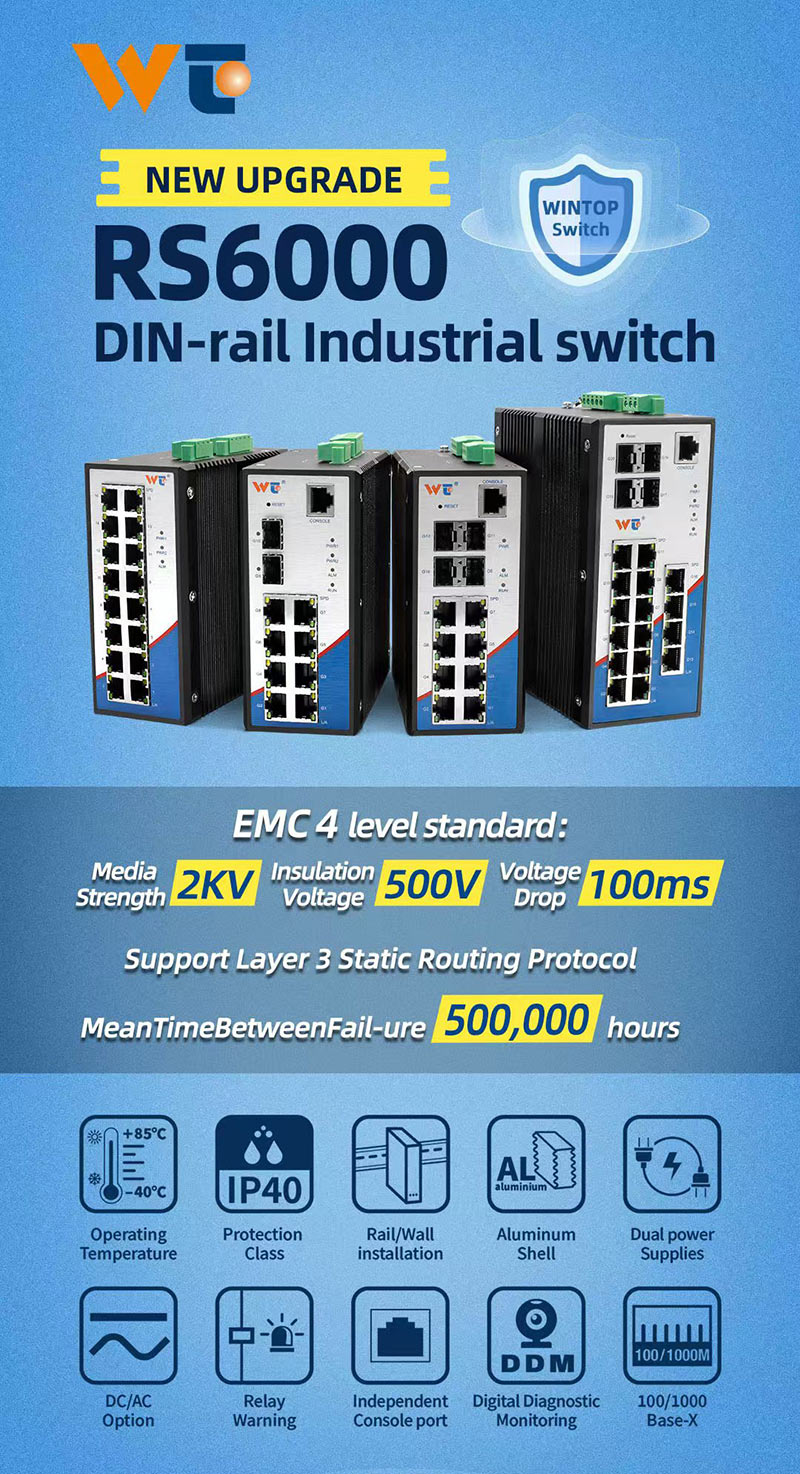Case Study: Applications of Industrial Switches in Electronic Driving Test Systems
In the rapidly evolving world of technology, driving test systems have seen a transformative shift from traditional methods to sophisticated electronic systems. At the heart of these innovations are industrial switches, which have revolutionized the way driving tests are conducted, ensuring accuracy, reliability, and efficiency. This article delves into the applications of industrial switches in electronic driving test systems, highlighting their pivotal role in enhancing the entire process.
The Evolution of Driving Test Systems
Gone are the days when driving tests relied solely on human judgment and manual processes. The advent of electronic driving test systems has brought about a paradigm shift in how driving competencies are assessed. These systems integrate advanced sensors, cameras, and industrial switches to create a seamless and automated testing environment.
Industrial switches, in particular, play a crucial role in connecting various components of the system, enabling real-time data transmission and process automation. This connectivity ensures that every aspect of the driving test, from vehicle control to environmental monitoring, is meticulously tracked and recorded.
The Role of Industrial Switches
Industrial switches are integral to the functionality of electronic driving test systems. These switches are designed to withstand harsh environmental conditions, ensuring consistent performance even in extreme temperatures, humidity, and dust. Their robust construction and advanced technology make them ideal for use in driving test systems, where reliability and precision are paramount.
Enhancing Data Accuracy
One of the key challenges in driving tests is ensuring the accuracy of data collected during the test. Industrial switches facilitate real-time communication between sensors and the central processing unit, ensuring that every action taken by the driver is accurately recorded. This includes steering inputs, braking patterns, acceleration, and adherence to traffic rules. The precise data collected helps in unbiased evaluation of the driver's performance.
Ensuring System Reliability
Reliability is a critical factor in driving test systems, as any malfunction can lead to incorrect assessments or even accidents. Industrial switches are engineered to provide high reliability and uptime, minimizing the risk of system failures. Their ability to handle high data loads and maintain stable connections ensures that the system operates smoothly throughout the testing process.
Facilitating Seamless Integration
The integration of various components in electronic driving test systems can be complex. Industrial switches simplify this process by providing a unified platform for connectivity. They support multiple communication protocols, allowing seamless integration of sensors, cameras, and other peripherals. This interoperability ensures that all components work in harmony, enhancing the overall efficiency of the system.
Overcoming Challenges with Industrial Switches
Implementing electronic driving test systems comes with its own set of challenges. However, industrial switches offer solutions to many of these issues, making them indispensable in modern driving test setups.
Dealing with Harsh Environments
Driving tests are conducted in diverse environments, from urban streets to rural roads. These environments can pose significant challenges, including exposure to dust, moisture, and temperature fluctuations. Industrial switches are designed to withstand these conditions, ensuring consistent performance regardless of the environment. Their rugged construction and protective features make them suitable for outdoor applications, where standard switches might fail.
Managing High Data Volumes
Electronic driving test systems generate vast amounts of data, which need to be processed and analyzed in real time. Industrial switches are equipped with high-speed data processing capabilities, enabling them to handle large data volumes efficiently. This ensures that the system can provide immediate feedback and results, enhancing the overall testing experience.
Ensuring Cybersecurity
With the increasing reliance on electronic systems, cybersecurity has become a major concern. Industrial switches incorporate advanced security features to protect against cyber threats. These features include encryption, secure communication protocols, and access control mechanisms, ensuring that sensitive data remains protected throughout the testing process.
The Advantages of Industrial Switches Over Traditional Products
Industrial switches offer several advantages over traditional switches, making them the preferred choice for electronic driving test systems.
Superior Durability
Traditional switches are often not designed to withstand the harsh conditions encountered in driving test environments. Industrial switches, on the other hand, are built to endure extreme conditions, ensuring long-term durability and reliability. This reduces the need for frequent replacements and maintenance, resulting in cost savings and uninterrupted operation.
Enhanced Performance
The advanced technology used in industrial switches enables superior performance compared to traditional switches. They offer higher data transfer speeds, better connectivity, and more reliable operation. This translates to more accurate data collection and processing, leading to fairer and more precise driving assessments.
Greater Flexibility
Industrial switches provide greater flexibility in terms of integration and scalability. They support a wide range of communication protocols and can be easily integrated with different components of the driving test system. This flexibility allows for easy upgrades and expansions, ensuring that the system can adapt to future technological advancements.
Conclusion
The integration of industrial switches in electronic driving test systems marks a significant advancement in the field of driver assessment. These switches enhance data accuracy, ensure system reliability, and facilitate seamless integration of various components. By overcoming the challenges posed by harsh environments and high data volumes, industrial switches play a pivotal role in the efficient and reliable operation of driving test systems.
In a world where technology continues to evolve at a rapid pace, the importance of industrial switches cannot be overstated. They not only improve the accuracy and reliability of driving tests but also pave the way for future innovations in the field. As we look to the future, the role of industrial switches in driving test systems will undoubtedly continue to grow, driving further advancements and ensuring safer roads for all.
Industrial switches are not just components; they are the backbone of modern electronic driving test systems, ensuring that every driver's skills are assessed with precision and fairness. In the quest for safer and more efficient roads, industrial switches are leading the way, one test at a time.
